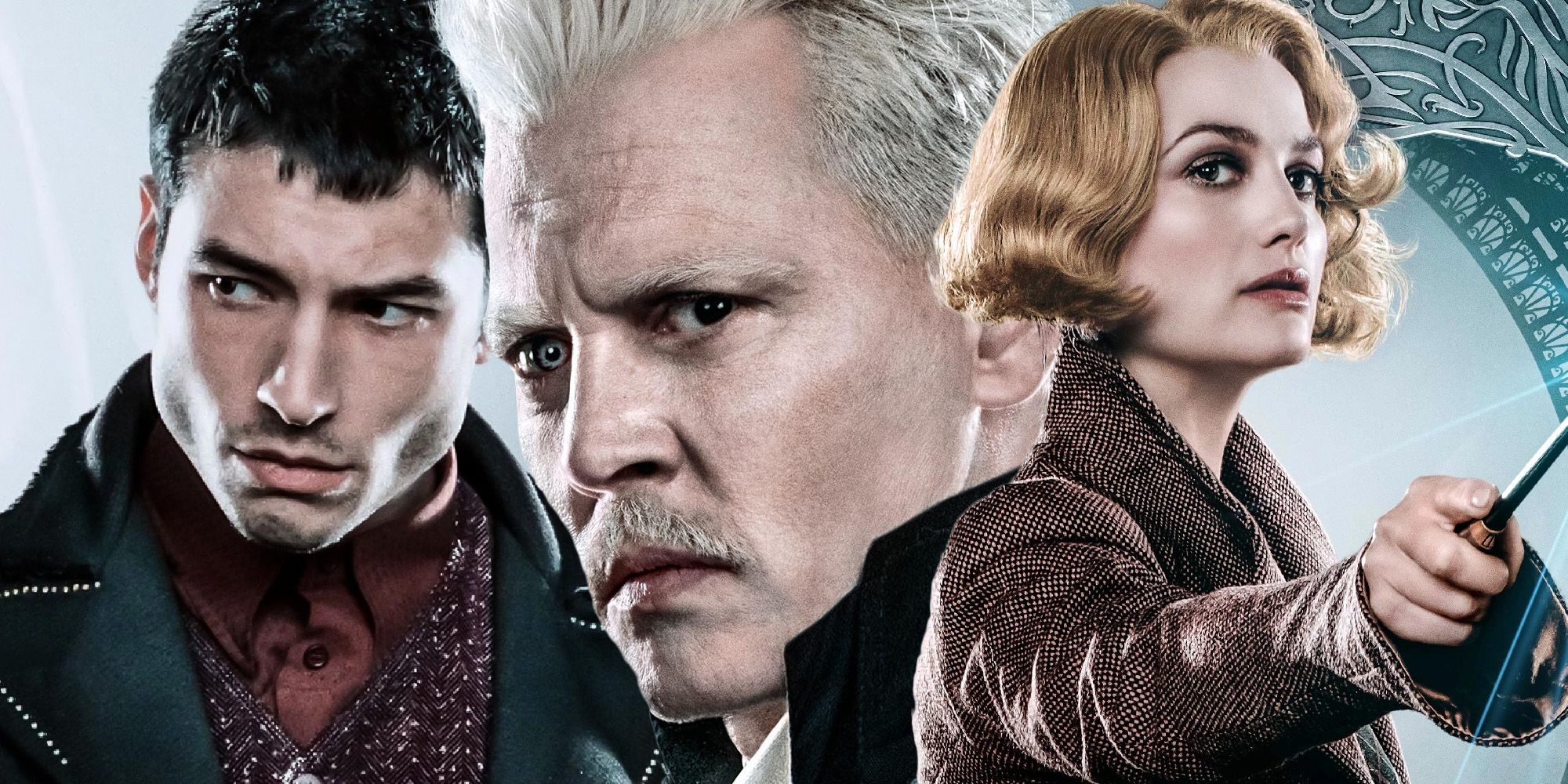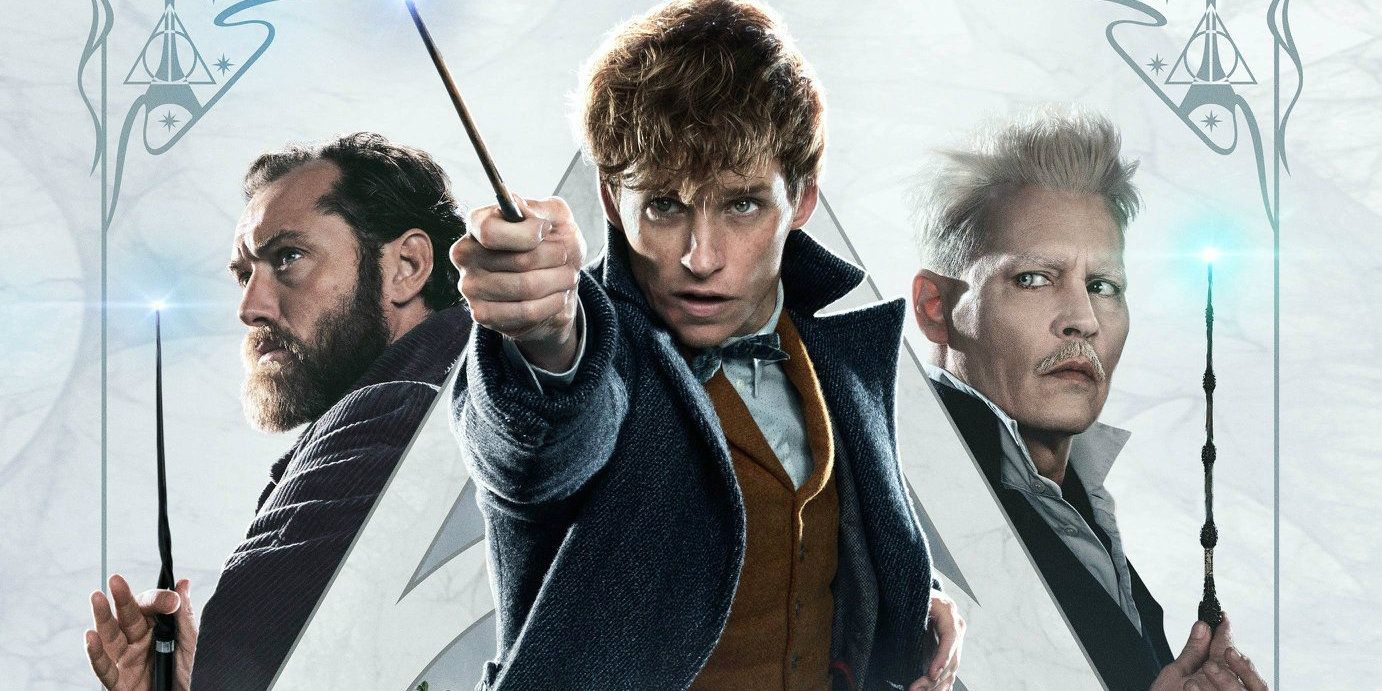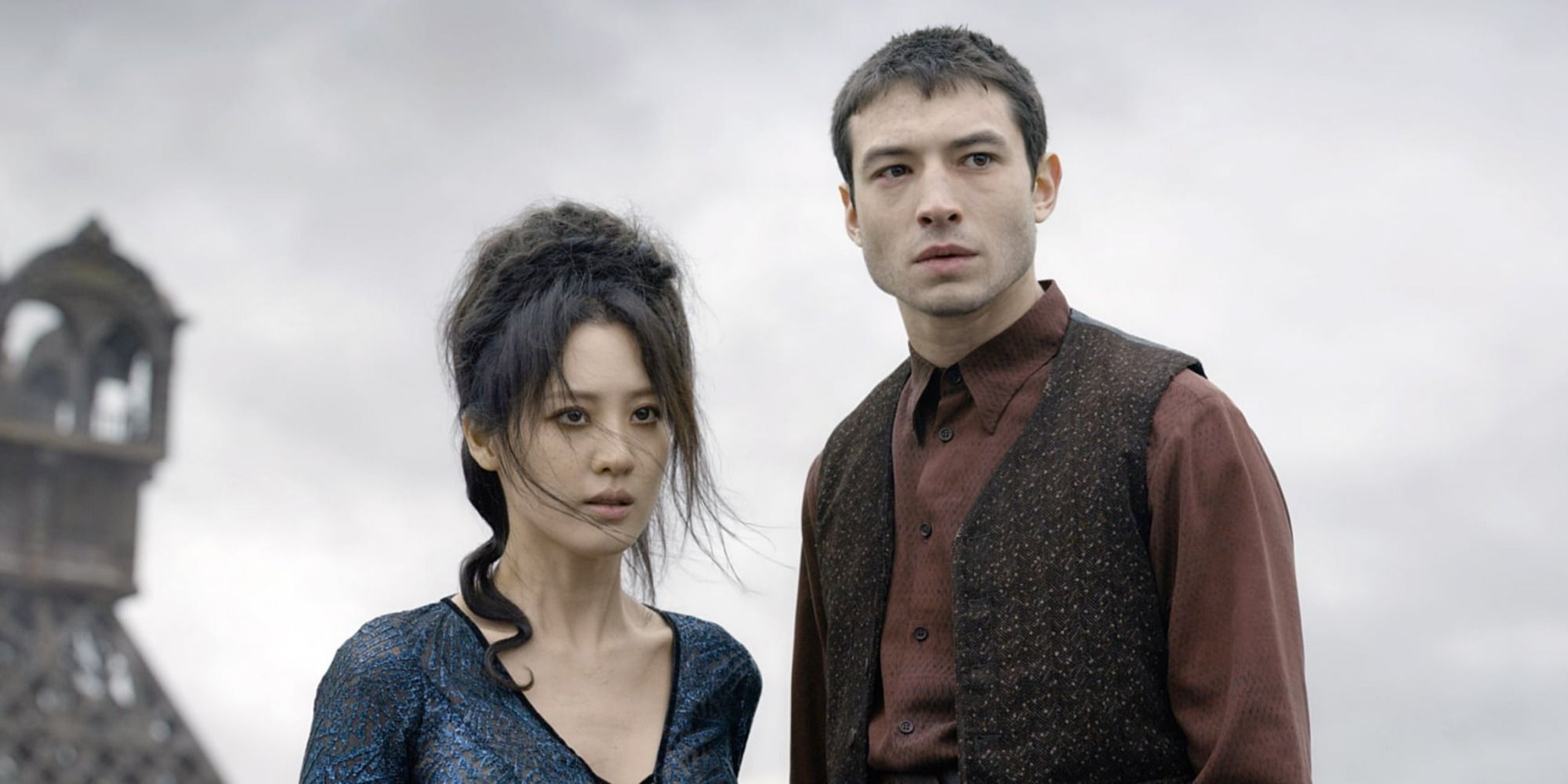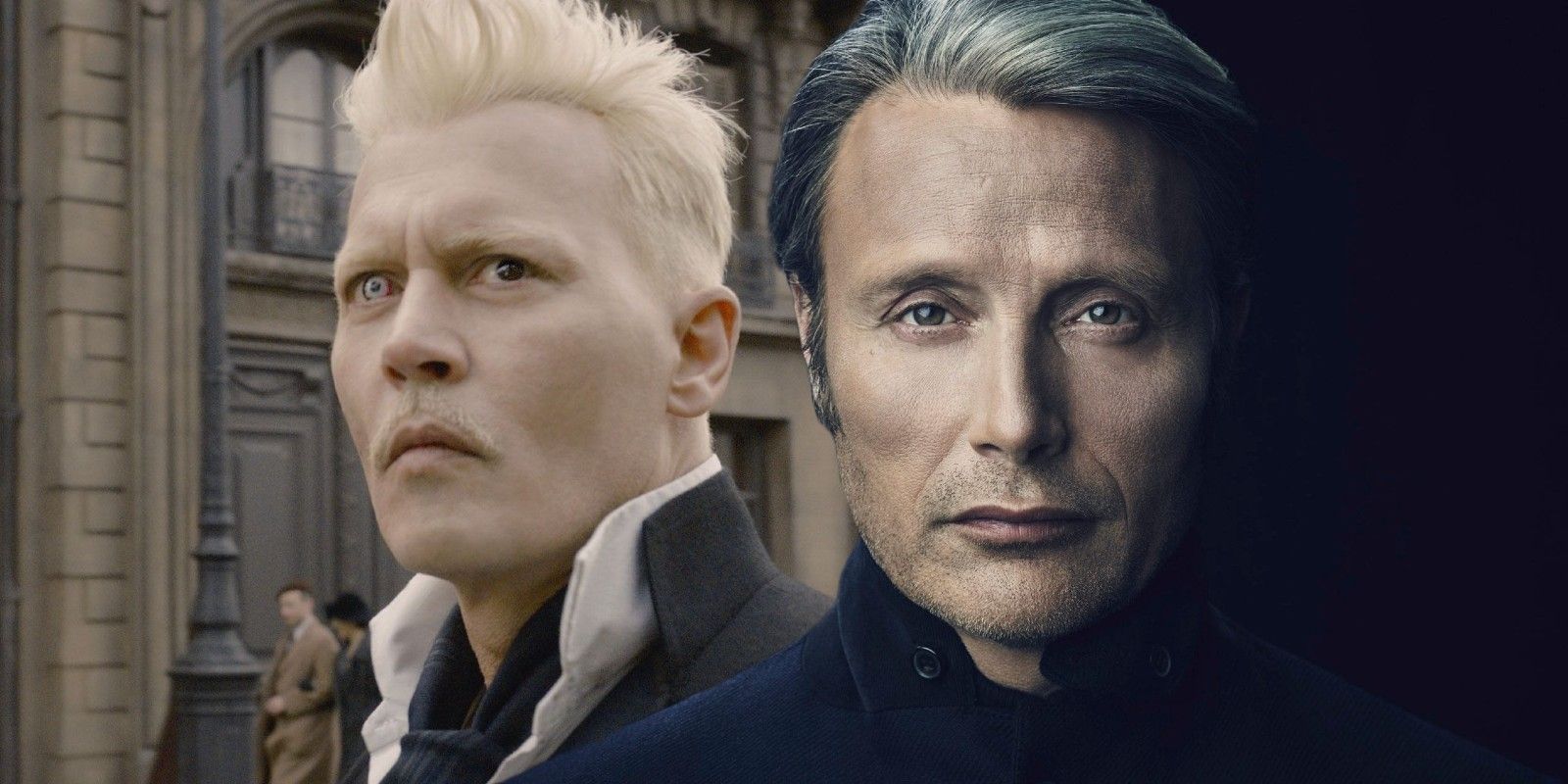
The Fantastic Beasts movie franchise is taking a longer break than expected from the big screen, with Fantastic Beasts 3's release date having been pushed back to summer 2022. The sequel has now recast primary villain Gellert Grindelwald, with Mads Mikkelsen is taking over the role after Johnny Depp was asked to resign amid the ongoing controversy of domestic abuse allegations by his ex-wife, Amber Heard. But the divisive nature of Depp's involvement is far from the only problem that the Fantastic Beasts movies need to fix.
The series got off to a relatively strong start with the release of Fantastic Beasts and Where to Find Them in 2016. Based on a textbook from the Harry Potter universe, Fantastic Beasts is a prequel set in the 1920s and starring Eddie Redmayne as the socially awkward protagonist Newt Scamander, who gets on better with strange creatures than he does with people. Of course, as Newt says, "there are no strange creatures, only blinkered people." Fantastic Beasts and Where to Find Them was well-reviewed and grossed $812 million at the box office - which, while on the lower end of the scale for Wizarding World movies, was still a very promising start.
The 2018 sequel Fantastic Beasts: The Crimes of Grindelwald marked a downturn for the franchise, not only performing worse at the box office (where it became the lowest-grossing Wizarding World movie to date, with a worldwide take of $655 million) but also garnering far more negative reviews. The franchise has also been surrounded by other controversies, including a viral video of star Ezra Miller apparently choking a female fan and throwing her to the ground, and screenwriter J.K. Rowling's ongoing vocal opposition to trans rights in the UK. But even setting aside all of the bad press, Fantastic Beasts 3 needs to address some basic story problems that arose in Fantastic Beasts: The Crimes of Grindelwald.

The biggest problem with Fantastic Beasts is its identity crisis. Harry Potter fans were originally sold on the idea of Newt Scamander travelling the world to find exotic magical creatures, and indeed that is the element of the movies that has been most successful. Kids love adorable creatures like Nifflers and Bowtruckles, while larger animals like the Erumpet, Zouwu and Thunderbird add grandness, spectacle and awe to the films - as well as creating delightful sequences in which Newt tames the giant beasts with mating dances or cat toys. Since Newt is only referenced in passing in the original Harry Potter series, the focus on him allowed Fantastic Beasts and Where to Find Them to create its own world full of original characters. The positive response to the first film was a testament to how successful this approach was.
Fantastic Beasts: The Crimes of Grindelwald felt like a step backwards. Though Grindelwald was present in the first film, he didn't appear until the very end. In the sequel he is the main villain, moving Fantastic Beasts back into the familiar Harry Potter territory of a plucky young hero taking on an evil wizard with an army of followers who has plans for pureblood domination over mugglekind. Even the plucky young hero is forced to take a back seat; Newt is still technically the protagonist, but he has very little agency. The most useful thing he does is sneak a Niffler into Grindelwald's rally, which then steals a brooch containing a magical blood pact between Grindelwald and Dumbledore.
With the introduction of Jude Law as Albus Dumbledore, Fantastic Beasts: The Crimes of Grindelwald became less a story about fantastic beasts and more a story about the upcoming wizarding war that, as Harry Potter fans will know, ends with Dumbledore defeating Grindelwald. Presumably Newt will be involved somehow, but this no longer feels like his story - and instead of being the main attraction, the fantastic beasts are now an element that feels shoehorned into the Grindelwald plot. Perhaps Warner Bros. lacked confidence that magical creatures would continue to be enough of a draw for audiences, but the success of the How to Train Your Dragon movies has proven how compelling a story about the relationships between humans and fantastic beasts can be.

The problem of Fantastic Beasts' identity crisis cuts both ways. Not only does it shift the focus away from Newt Scamander and the fantastic beasts of the franchise's title, but the need to keep Newt and his magical creatures tangentially involved means that Fantastic Beasts: The Crimes of Grindelwald didn't have enough time to focus on the intertwining stories of Credence Barebone and Leta Lestrange. The main criticism of this subplot among reviewers wasn't necessarily that it was bad (the build-up to it, including a haunting scene in which a Boggart manifests itself to young Leta as a mysterious shrouded bundle floating in the air, has some very strong moments), but that it wasn't given enough room in a movie that was already over-stuffed with other subplots.
Ultimately the reveal that Credence Barebone is Leta Lestrange's half-brother, Corvus Lestrange - and the subsequent reveal that Corvus actually drowned as a baby and Credence isn't Corvus at all - is consigned to a dizzying few minutes of exposition towards the end of the movie. The audience isn't given enough time to get invested in the idea of Credence being Corvus, so while the flashback to the shipwreck where Corvus drowned is somewhat moving in isolation, it doesn't have much impact as part of the larger story. Meanwhile, the ending twist that Credence is supposedly Albus Dumbledore's long-lost younger brother, Aurelius Dumbledore, feels incredibly random and goes completely unexplained. There's no build-up to it (except for the minor detail of Credence caring for a baby bird that turns out to be a phoenix), and no pieces that the audience could have put together by themselves.
Fantastic Beasts 3 is now in the unenviable position of having to deal with a reveal that didn't have the impact on audiences that it was supposed to, and was instead treated as yet another Harry Potter canon retcon by Rowling (who wrote the screenplays for the first two Fantastic Beasts movies, and co-wrote the third with Steve Kloves). This won't be easy to do, especially given the aforementioned problem of the Fantastic Beasts storyline simply being too overcrowded. However, it is possible if Fantastic Beasts 3 really focuses on just Newt and Credence and their character arcs. The Crimes of Grindelwald not only split the focus between those storylines, but also a love quadrangle between Newt, Theseus, Leta Lestrange and Tina Goldstein, more couples drama between Jacob and Queenie, and the backstory for Dumbledore and Grindelwald - all of which combined to create the chaotic final product.

Mads Mikkelsen will be the third actor to play Gellert Grindelwald in the Fantastic Beasts trilogy (actually the fourth, counting Jamie Campbell Bower, who plays the younger Grindelwald in flashbacks). For most of Fantastic Beasts and Where to Find Them the evil wizard was in disguise as Auror Percival Graves, played with quiet intensity by Colin Farrell. From Graves/Grindelwald's final speech in the first film and Grindelwald's rally speech at the end of Fantastic Beasts: The Crimes of Grindelwald we know that he has a general distaste for muggles, whom he considers to be an inferior species fit only to be a "beast of burden." Grindelwald has given voice to a resentment in the wizarding world that witches and wizards are forced to hide away from the non-magical population, and a belief that they should rule the world instead.
Fantastic Beasts 3 has to explain Grindelwald's new appearance, though that shouldn't be too difficult in a franchise that's set in a magical world. However, the recasting is also an opportunity to make Grindelwald a more well-defined villain, as Mikkelsen will (hopefully) put his own spin on the character rather than simply trying to emulate Depp's performance. The good news is that Grindelwald does have the potential to be a better villain than Voldemort was.
The big bad of the previous franchise was mainly characterized through the wizarding world's fear of him, and ended up being overshadowed by the more insidiously evil Dolores Umbridge, who is generally remembered as the franchise's best villain. Grindelwald shares Umbridge's talent for propaganda, using claims about "the greater good" and assurances that he doesn't hate muggles to make his plans sound more palatable. Fantastic Beasts 3 has an opportunity to lift the veil and show Grindelwald in his more private moments - not only with more flashbacks to his younger days with Dumbledore, but also as he lays out his plans for world domination from this home base of Nurmengard Castle.
-
For all the controversy surrounding it, the poor reviews of the second installment, and the delays in filming caused by the coronavirus pandemic, Fantastic Beasts still does have the potential to emerge as a stronger story than the original Harry Potter saga. And with three movies left to go, there's still plenty of time to turn things around, especially with the movie's release date having been pushed back. If Fantastic Beasts 3 can deliver a more streamlined story that successful marries Newt and his magical creatures with the story of Grindelwald's rise to power, all of the ingredients are in place for a truly compelling fantasy tale set in one of the darkest eras of Wizarding World history.
from ScreenRant - Feed https://ift.tt/39o0QSx


0 Comments